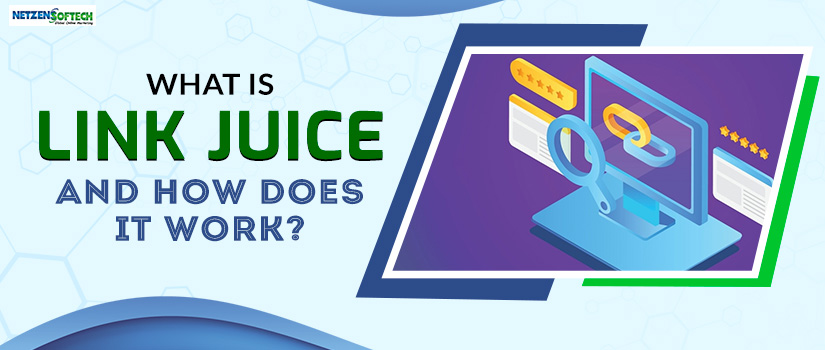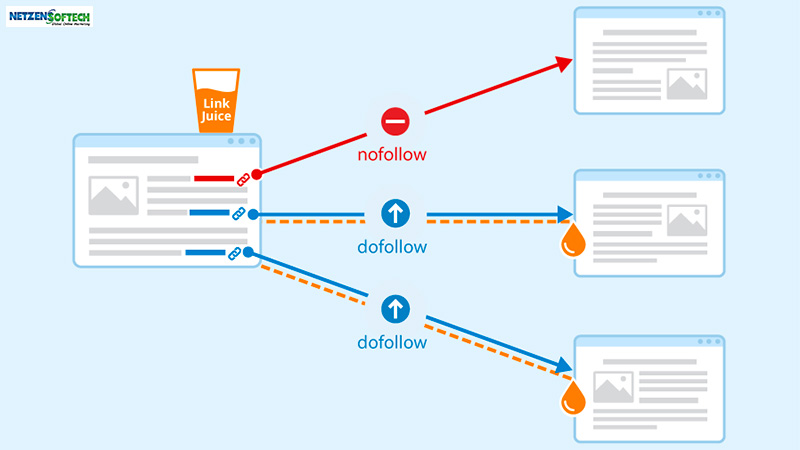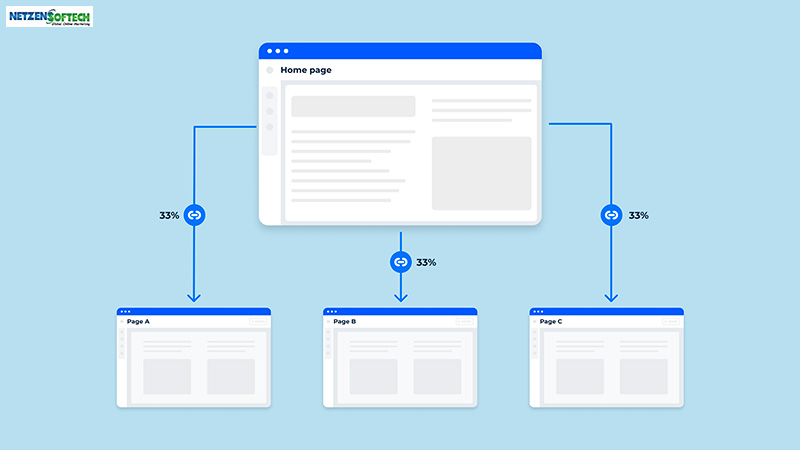

A website’s Google ranking is influenced by a variety of significant elements. Some of these are well-known and frequently seen by experts that work with SEO.
However, those with less understanding might not be completely familiar with Link Juice.
One of the major elements that influence whether an article will rank highly in algorithms is tied to the links in the text.
Making the most of this method requires a thorough understanding of Link Juice, its advantages, and how to use it. Therefore, in this article, we are going to discuss what is Link Juice and how does it work? So, read further to learn more.

“Link juice” is the term used in the SEO (Search Engine Optimisation) industry to describe the authority or value that a backlink passes to the website it is connected to. Link equity is also the term used in the SEO world for link juice. If a page contains backlinks from websites that are more authoritative and relevant on the subject, it will appear higher in search engine results pages (SERP).
The more link equity (link juice) your page has, the more likely it is to rank for the keywords that are important to you in Google and other search engines. The ranking of a page is determined by several significant criteria. Strong backlinks are simply one (extremely essential!) aspect of the puzzle that contributes to link juice.
Link juice is frequently mistaken for PageRank, which is how Google determines the authority of a page. (Google has officially “sunsetted” PageRank, but the majority of SEOs are certain that Google still utilizes some method to assess a page’s value that affects how highly it ranks.) Link equity is the “value” that each backlink adds to a page’s PageRank. However, not all links generate powerful link juice. In Google’s eyes, websites with higher authority are more reliable, and their links carry more weight.
Now the Link juice can be done in two different ways: by internally linking from one page on your website to another or by having an external site link to you or your page.

Let’s say you have sites A and B. Site If all other ranking factors remain the same and site B has no links but site A has one link, site A will rank higher in search results because of the link juice from the external site that links to it. But what would happen if site B also received a link? Then, the amount of juice that each link passes determines the ranking of the sites.
Although it is not the only ranking factor, it is generally referred to as one of the most significant ranking signals. Internal linking can help a page’s link popularity expand across your entire website. Numerous research has connected internal linking to improved rankings. For the sake of this post, it’s crucial to understand that you can direct link juice from one page to another on your website to boost the ranking of other pages.
You may urge Google to acknowledge the pages of your website as subject matter authorities by linking to your own important pages from articles that are similar to your own. For instance, if you have an article titled How To Do Keyword Research, you can aid in enhancing Google’s perception of the post’s relevance for the topic or term “keyword research” by linking to your How To Do Keyword Research article from an article reviewing a keyword research tool. This connection technique is part of effective siloing, which helps to clarify your main website themes.
External links, commonly referred to as hyperlinks or backlinks, provide link juice to your website. The methods listed below will assist you in gaining more backlinks:
Of course, there are other effective methods and ideas as well. For more information on how to boost the amount of link juice, you can get in contact with the best SEO digital marketing agency, Netzens Softech.
Also Read: What is Google Sandbox & What are Its Effects on New Websites?
Happy Clients
Development Projects Undertaken
Services Provided
Years of Experience